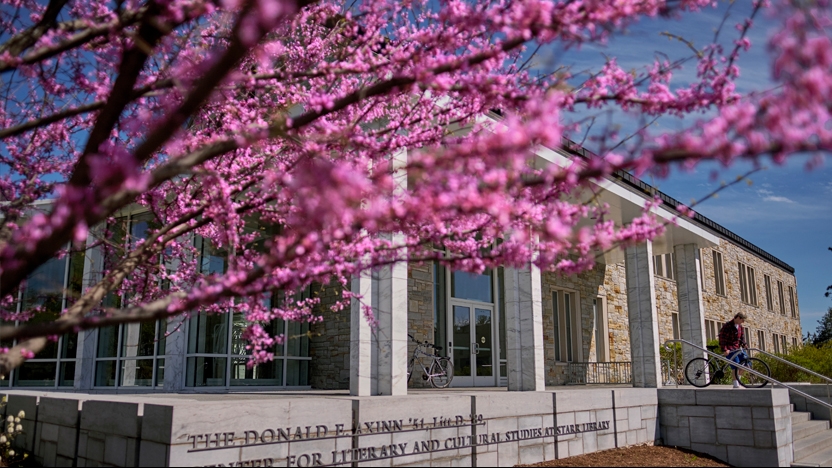Mellon Foundation Grant Will Support Migrant Justice Issues in Vermont
The Axinn Center for the Humanities will administer the grant focused on teaching students about migrants’ experiences in collaboration with local organizations

A three-year, $1.48 million grant from the Mellon Foundation’s Humanities for All Times initiative will support work to examine local and global issues related to migration.
The grant will fund a project by Middlebury’s Axinn Center for the Humanities that examines Vermont’s complex history with structural, cultural, and financial struggles facing migrants. The Migrant Justice in Vermont and Beyond project will delve into the past and present experiences of migrants, said Febe Armanios, professor of history, co-founder and former director of the Axinn Center.
“It shows how the humanities––one of Middlebury’s core strengths––can enhance our comprehension of relevant social, political, and economic factors that shaped migration,” said Armanios. “It also helps to increase our awareness of how stories of home, movement, place, belonging, and displacement affect our immediate surroundings.”
Selected from among 50 liberal arts colleges invited to apply, Middlebury is part of a 10-college cohort working to develop social justice-oriented curricular and community projects. As part of this work, the Axinn Center will conduct innovative research, migrant justice workshops, three summer institutes for faculty, and develop new Public Humanities Labs focused on teaching students about migrants’ experiences, in collaboration with local organizations.
“We’re delighted to support Middlebury students and faculty as they unleash the power of humanities skills and methods on an issue of pressing local and national significance,” said Carolyn Dinshaw, senior program officer for higher learning at the Mellon Foundation.
The grant’s support will allow the Axinn Center to expand its nationally recognized Public Humanities Labs Initiative, launched as a small pilot in 2021. The labs integrate humanities skills and expertise into classes that foreground experiential learning, public-facing outreach, and engagement with community partners. Faculty will attend a March 24 workshop with community partners to identify issues affecting refugees and migrants and discuss how to build courses to address them.
Henry N. Hudson Professor of English Marion Wells, who co-founded and served as director of the Axinn Center with Armanios, said the grant will support the creation of 30 new Public Humanities labs over the next three years “promoting the development of experiential, public-facing classes that delve into the literary, historical, philosophical, linguistic, and other humanistic aspects of migration, both local and global.”
Addressing Migrant Justice Issues in Vermont
The grant’s focus on migrant justice arises from the need to address the largely invisible challenges experienced by migrants globally and locally. Many of the estimated 1,200 migrant laborers in Vermont work and live in Addison County and face language barriers, food and housing insecurity, lack of access to healthcare, and community indifference or hostility.
Based on those needs, Wells; Armanios; new Axinn Center Director Ian Barrow, professor of history; and Associate Director Carrie Anderson, professor of history of art and architecture, wrote the Mellon proposal. Anderson said community engagement will be a core part of the grant’s pedagogical context, allowing faculty and students to “showcase the critical role that the humanities play in making positive social change in our communities.”
The grant also includes funding for a postdoctoral fellow in migration studies to teach courses, conduct research, and deliver public lectures. Fifteen undergraduate students will be awarded fellowships to research and write on topics related to migration.
In the context of the much-noted crisis in the humanities across the country, the grant will help ensure, as Barrow notes, “that the humanities at Middlebury—one of the pillars of the college at its founding—will remain vibrant and relevant.”
About the Andrew W. Mellon Foundation

